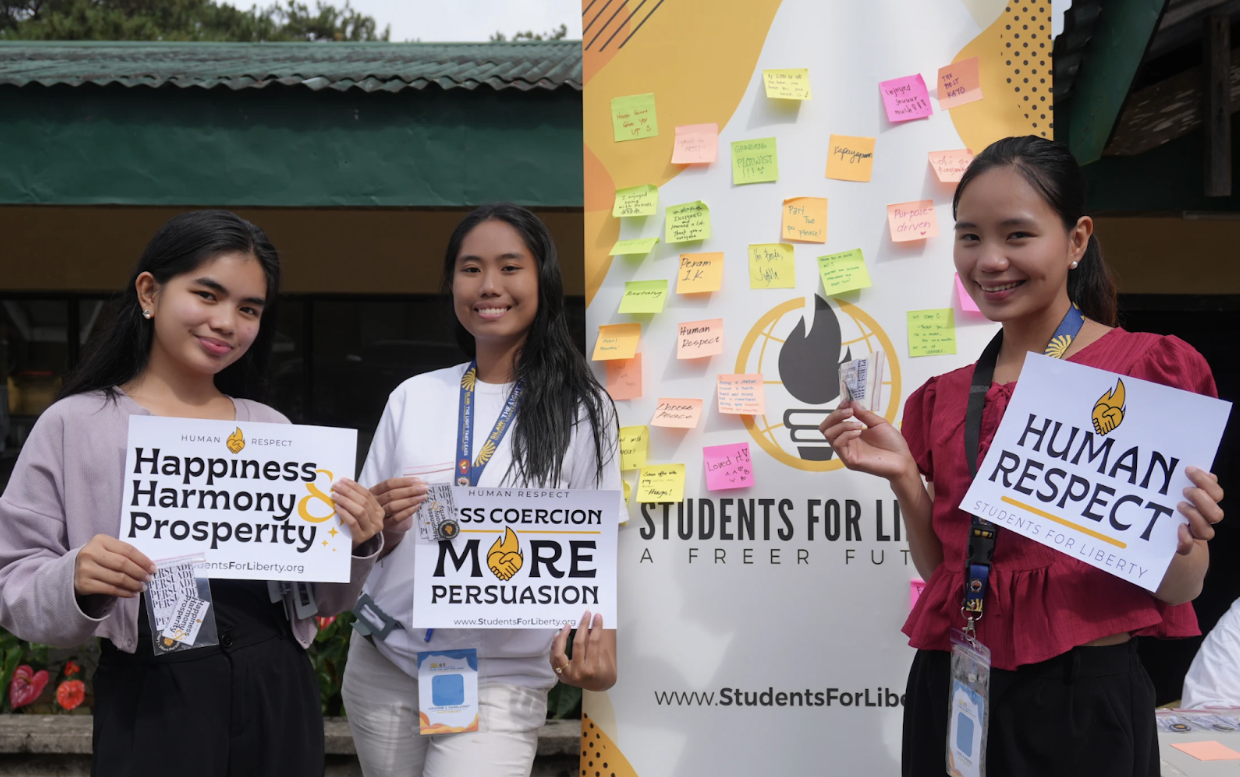Here, Professor Matt Zwolinski provides three essays that argue there are problems with Ayn Rand’s Objectivist philosophy. After each, Professor Stephen Hicks responds with an essay of his own that clarifies and defends the Objectivist point of view.
Ayn Rand’s ethical egoism – Matt Zwolinski
Ayn Rand is, quite famously, an advocate of ethical egoism — the idea that each individual’s own life is the ultimate standard of value for that individual. She is also, quite famously, an advocate of individual rights — the idea that each individual has a morally protected sphere of freedom against which other individuals must not intrude. Figuring out how, or whether, these two things fit together is one of the major puzzles involved in making sense of Rand’s philosophy. If my life is the standard of morality, then why should I refrain from interfering with your freedom if doing so will advance my interests?
In her “synoptic statement” on rights, Rand makes the following series of claims:
“If man is to live on earth, it is right for him to use his mind, it is right to act on his own free judgment, it is right to work for his values and to keep the product of his work. If life on earth is his purpose, he has a right to live as a rational being: nature forbids him the irrational.”
But there seems to be a fallacy of equivocation going on here. In the first three uses, Rand uses the term “right” to assert that certain actions are morally permissible (it’s not wrong to do them) or even obligatory (it would be wrong not to do them). So, for example, when Rand says that it is right for man to work for his values, she seems to mean at least that it is not wrong for him to do so, and perhaps more strongly that it would be wrong for him not to do so.
The other kind of “right”
Rand’s fourth usage of the word “right,” however, is significantly different. When she says that man “has a right” to live as a rational being, she is not merely saying that it is right for man to live as a rational being. She is saying that man has a right to live as a rational being. And these are two very different claims.
To have a right is to have a certain kind of claim against others. That claim could be a purely moral one (in which case the right is a moral right), or it could be one enforceable by law (in which case it is a legal right). It could be a claim against others that they perform certain positive actions such as repaying a debt (in which case it is a positive right), or it might simply be a claim that others refrain from performing certain kinds of actions like taking one’s property without one’s consent (in which case it is a negative right).
The important point, for our purposes, is that rights in this sense are claims on other people. To say that one person, A, has a right against another, B, doesn’t say much at all about what it would be wrong or right for A herself to do. What it says, instead, is that it would be wrong for B to act (or fail to act) toward A in certain ways.
If any person has a right, then as a matter of moral logic, some other person must have a corresponding obligation.
And this is the puzzle for Rand and her followers: Where exactly are these obligations supposed to come from? In order to remain consistent with egoism, it seems that Rand must claim that A’s right against B must be grounded not in A’s interests, but in B’s. In other words, B only has an obligation to refrain from interfering with A if it is good for B to do so. But as Mike Huemer has argued, it’s very hard to see why this restraint will always turn out to be in the best interests of B.
It certainly doesn’t look that way in “lifeboat” cases like the situation described in Joel Feinberg’s story of the lost hiker — cases that I think are not as easily dismissed as Rand believed them to be. But we don’t need to go to the lifeboat to find cases that give us reason to doubt Rand’s claim. Even in ordinary life, there would seem to be plenty of situations in which B can advance his real, rationally defensible interests by violating A’s rights: stealing her lost wallet, lying on a resume he submits to her business, or littering on her property. We don’t need to go to the lifeboat to find cases that give us reason to doubt Rand’s claim.
Objectivists must, for each and every one of these cases, deny either that (1) the action is actually a rights violation, or (2) that B’s interests would actually be advanced by the violation. In certain cases, this might work — B might not correctly anticipate the guilt he will feel after stealing, or his chances of being punished. But whether the expected costs of a rights-violation outweigh the expected benefits is an empirical question. And as far as I can tell, neither Rand nor her followers have given us sufficient reason to believe that the answer to that question is always going to be that they do.
Zwolinski and Rand on Egoism and Rights — Stephen Hicks
Two points are most important here, one about content and one about method.
At first sight, rights do seem egoistic: I have a right to my life, my liberty, my property, and as a matter of robust, jealously-guarded principle I want those rights to be respected by others. At first sight, rights do seem egoistic.
Rand in particular argues that our rights are based in our needs and capacities as human beings. Human life is a process of thinking, producing, and consuming, and to survive and flourish each individual must take responsibility for the process. The creation and consumption of human value requires freedom of thought and freedom of action — individuals need to think and discover what is good for them, they need to act on their knowledge to produce those good things, and they need to consume the goods they produce.
In a social context, other people can be beneficial to the process: we can learn from each other, act jointly to be more productive, and trade to mutual advantage as consumers.
But other people can also be threats to the process: censorship, kidnapping, enslavement, theft, and so on undercut the affected individual’s ability to think, act, and consume. Those actions are therefore social wrongs, on principle, so their opposites are social rights.
That is what Rand means in the lines in which right is repeated, which Professor Zwolinski sees as problematic (paragraph 2): rights are a type of moral principle; they are part of a family of concepts that link individual right to social right to political right. The connection is maintaining the identification of what is moral in each increasingly-narrow context.
But, as Zwolinski questions (paragraph 6), why does it follow egoistically that I should respect others’ rights? I want my rights to be respected by others, yes — but why should I want others’ rights to be respected by me? Where does the principled commitment to universal and symmetrical application come from?
Rand argues that as human beings we are not able to survive by instinct or by range-of-the-moment action. We are rational beings, and we survive and flourish by making principled, categorical identifications and acting on them. I need to be self-responsible. I need to be productive. I need to plan long-range. And I need to do all of that in a world in which much of my living is social. So what principles should I adopt in my dealings with others?
So the relevant questions about respecting others’ rights are these:
- Can I recognize that others are humans?
- Can I recognize that they have the same general needs?
- Can I understand that, as a general rule, their respecting certain principles in their dealings with me is good for me?
- Can I understand that, as a general rule, my respecting certain principles in my dealings with them is good for them?
- Can I understand that both or all of us will be better off if certain principles are respected?
- Can I grasp that the same facts that make those principles right for me also make them right for others?
Rand’s answer to all of those questions is Yes. Moral self-education, then, hopefully guided and encouraged by good parenting and other socialization, is a matter of thinking through those questions and testing various answers to them in one’s dealings with family members, neighborhood kids, schoolmates, and others as one grows—until one is in a position to conceptualize and commit to principles as a mature individual. Rational egoism is thus Rand’s grounding of political rights.
(This is not yet to presuppose answers to questions about emergency situations, whether to be a selective predator, how to deal with non-respecters of rights, determining degrees of violations of rights, or the status of those not capable of grasping principles. Rand’s theory of rights is about contextual principles applied with practical wisdom; it’s not one of contextless absolutes to be mechanically followed. So more needs to be said.) Rand’s theory of rights is about contextual principles applied with practical wisdom.
The emphasis on rational above indicates that Rand epistemological matters are central to normative issues, for Rand is in a minority of thinkers who so emphasize the importance of fundamental philosophy. This brings us to a second important point.
Permissible to Whom?
In characterizing Rand’s position, Zwolinski asks at one point (paragraph 3) whether the claim of rights is to be interpreted as permissible or obligatory. That distinction should give us pause, for what kind of morality frames things in terms of permissions and obligations?
If we are to speak of permissibility, then we should ask from whom we are seeking permission; and if we are to speak of obligatory, then we should ask to whom or what we are so obligated. Yet if we know anything about Rand’s ethics, then we should sense that such a taxonomy is alien to it.
The point is that when interpreting a thinker’s position, it is weak methodology to state a thinker’s claim, interpret it by a distinction taken from some other philosophical framework, note that the resulting mix makes no sense, and then criticize the original claim.
Other moralities’ distinctions may be useful in criticizing a thinker’s position after one has figured out what it is. But when initially trying to interpret a position, we should beware of importing highly abstract distinctions from foreign moral theories.
Property and Value — Matt Zwolinski
Ayn Rand was a firm believer in property rights, holding them to be essentially a corollary of the right to life. After all, if the right to life is a right to act in order to preserve one’s life, then this right would be ineffectual if man did not also have the right to the product of his action — to that which he has produced.
The problem is that everything we produce is, ultimately, made out of raw materials that were not themselves produced by anybody. So even if it’s easy to justify why I should be morally entitled to the cake I’ve baked out of the flour and butter I owned, it’s not so easy to justify why I should be morally entitled to the patch of land I simply found and quickly put a fence around. In political philosophy, this is known as the problem of “original appropriation.”
The problem of original appropriation strikes many philosophers as serious because of the seemingly zero-sum nature of natural resources. There’s only so much land to go around. Therefore, whatever land you take and claim as your own leaves less land for me. Your interests might be served by your act of appropriation, but mine seem to be set back. Original appropriation, it has seemed to many philosophers, involves a real conflict of interests between the appropriators and everyone else. Original appropriation, it has seemed to many philosophers, involves a real conflict of interests.
Now, I think there are ways out of this problem — the most promising of which is developed in a wonderful essay by David Schmidtz. But Rand herself never grapples with the problem directly.
I suspect the reason why is that she didn’t see it as a genuinely serious problem. Rand did not believe that land and other natural resources were the true source of value. And thus, one person’s appropriation of some of that stuff did not really set back the interests of others in any serious way.
Mind and Value
For Rand, man’s mind is the fundamental source of values that sustain his life.
Physical stuff by itself can be no aid in man’s survival unless it is first understood by the mind and then put to work through deliberate, rational, productive action. Before man figured out what to do with it, crude oil was a pollutant, not a value. It was the human mind that transformed oil from an annoyance into a resource.
I think that there is a tremendously important insight in this analysis of value. But I also think it’s possible to stretch that insight too far. And I think that Rand, unfortunately, is guilty of doing precisely this.
After all, even if it’s true that nothing of value would exist without the human mind, it’s equally true that nothing (or at least almost nothing) of value would exist without physical resources for the mind to operate on. Both the human mind and physical resources are thus necessary for the production of value. Objective value is an aspect of reality in relation to man. So without the reality, or without the man, there is no value.
Thus, even if we accept Rand’s idea that natural resources have no intrinsic value in themselves, we must nevertheless recognize that they are a necessary component in the production of value. And so when we take those natural resources and put a fence around them, we are depriving others of something important. We are depriving non-owners of the liberty they once possessed to use that resource in their own productive activities. We are imposing upon them an obligation to refrain from using that resource without our consent — an obligation that we will enforce with the use of physical violence, if necessary. And this calls for justification.
I am an enthusiastic supporter of property rights. And thus I do believe that such justification can be provided. But — and here I return to my earlier point about rights and egoism — providing a justification to one person of another person’s property right in X would seem to require doing more than simply showing how such rights are good for the first person. Since A’s property right imposes an obligation on B, we need to show how such an obligation is good for B as well. If A’s property right in X is good for A but bad for B, then for B to respect that right would be an act of self-sacrifice, and fundamentally incompatible with his rational pursuit of his own self-interest.
Property Rights and Value: Zwolinski and Rand and Locke and Rousseau — Stephen Hicks
Professor Matt Zwolinski raises a fun and deep issue about property rights. It has a long history before Rand, with Locke and Rousseau staking out near-opposite positions, and with post-Rand thinkers such as Robert Nozick and David Schmidtz making strong contributions.
Why did Rand not engage with it? I agree with Zwolinski that from the perspective of her robust creation ethic, it is either trivial or a non-problem. So the question is whether it really is a problem and/or a more serious one than she judged.
Value results from raw materials plus human agency. How much comes from each? Raw materials can be more or less plentiful, and human agency can be more or less creative. So we can play around with the variables by considering examples.
- A writer uses 1,000 sheets of paper to write a great novel. In this case, the raw material is plentiful and the contribution of human creativity is huge, so we are not inclined to complain that her taking 1,000 sheets of paper leaves less available for the rest of us.
- A hiker discovers easily accessible platinum deposits in unowned territory, stakes it out, and becomes rich after relatively minimal effort. In this case, the raw material is relatively scarce and the contribution of human creativity is much less, so we are more likely to hear complaints that his appropriation is questionable.
So if one emphasizes the value-adding power of human creativity, as Rand and her great near-contemporary Julian Simon are noteworthy for doing, then one acquires an opportunity mindset. The issue of raw materials becomes more trivial, as intelligent people can always create value out of what is available.
But if one is struck by a relative scarcity of certain raw materials, then, as Zwolinski points out, one is pushed into a zero-sum mindset, and that mindset tends to see others’ gains as its deprivations and others’ rights as imposing unwanted obligations.
Perspectives on Property
Two points are worth making here, so let’s work with the most popular example—land—to get to the core assumptions, for as always in philosophy the basic assumptions are the most important. As always in philosophy the basic assumptions are the most important.
Suppose I look at the Manhattan skyline, as Rand did from her apartment. Do I see opportunities for me, given what others have done with the land? Or do I see deprivation, as others got to Manhattan Island long before I did and acquired it all for themselves? If I scale out to the United States as a whole, I find that almost half of its land is owned by local, state, and federal governments and the rest by private individuals and organizations — all of it acquired long before I immigrated. Should I say that opportunities have been taken away from me and/or that obligations have been imposed on me?
The first important point about such examples is one made by Locke in the Second Treatise, where he states that “he who appropriates land to himself by his labour, does not lessen but increase the common stock of mankind.” (I see Schmidtz as working out in more welcome detail what was only sketched by Locke.)
If, for example, I had arrived in 1600 in what is now New York, then some opportunities would have been available to me then that are not available now. True. But some opportunities are available now that were not available then. At which time was the net value of the opportunities greater? If the net opportunities are greater now, then the language of deprivation and imposition is misplaced. (And if my goal is to acquire land in New York, then that opportunity is still available to me, as it has a lively real-estate market.) So property rights are win-win, contrary to the zero-sum thinkers.
But here is what I take to be the second and deeper point. We can speak of the mutually-beneficial nature of property rights, and that is a value of them to each of us. But that value of property rights should not be taken as part of the justification for initial appropriation, because raw materials in their unowned state are not items to which anyone has a claim.
Here we can take Rousseau as the foil, with his famous line against appropriators that initially “the fruits of the earth belong to us all.” His assertion is that, prior to property rights, we all have a claim in common to everything that exists, so anyone who appropriates incurs an obligation to make good on his or her lessening the common stock held by the rest of us.
But initially the raw materials of the universe are unowned, not owned in common, which means that nobody has any sort of claim to them with respect to anyone else. It’s the difference between saying:
- The raw materials are unowned, so everybody has a claim to them.
- The initial raw materials are unowned, so nobody has a claim to them.
To put the point in metaphysical terms, when one comes into existence, one has no claims on anything in the world. A just-born child has no entitlements with respect to the world at large, including both the as-yet unowned raw materials and the properties of others.
The child’s parents have obligations to provide for it on its growth journey to adulthood, but the governing assumption is that everything has to be earned. That includes that first breath of air the child appropriates from the commons by his or her own effort—for which the child needs present no justification. At the same time, the preexisting property arrangements are not an imposition upon the just-born child that must be justified to the child.
Force and Freedom — Matt Zwolinski
Ayn Rand endorses a form of the libertarian “non-aggression principle,” which holds that the use of force should properly be banished from human relationships. For Rand, force is evil because it prevents individuals from acting according to the dictates of their own reason.
Thus, force violates man’s fundamental right to life — his right to act in pursuit of his values according to his own judgments, uncompelled by the judgment of any other. As Rand puts it, “To violate man’s rights means to compel him to act against his own judgment, or to expropriate his values. Basically, there is only one way to do it: the use of physical force.” Force violates man’s fundamental right to life.
For Rand, then, “the basic political principle of the Objectivist ethics is: no man may initiate the use of physical force against others.” But how exactly are we to understand the meaning of the key term “force” in this principle?
Traditionally, libertarians and Objectivists have taken one of two broad approaches to defining “force.” One approach, which we can call the “moralized approach,” defines force in terms of an underlying theory of rights. The other approach, the “non-moralized approach,” defines force in a way that makes no essential reference to rights or other moral terms.
To see the difference, imagine a case in which A violates B’s rights, but does so without so much as physically touching B. Perhaps B leaves his car unlocked on the street, and A lets himself in and drives away with it. Has A initiated force against B? If we accept the non moralized definition of force, we will have to say “no.” After all, A didn’t touch B at all. The only way we can explain the way in which A’s action affects B is in terms of the property right B has in his car. But if this is our basis for claiming that A has initiated force against B, then we are implicitly relying on a moralized definition of force. A’s action initiates force against B because it violates B’s (moral) rights.
It matters a great deal which of these understandings Objectivists rely on to inform the non-aggression principle. But neither understanding is entirely without its own peculiar difficulties. If, for instance, we accept any moralized definition of force, then we abandon the tight, conceptual connection between force and the violation of rights, and must accept the possibility that some violations of rights will not involve the initiation of force, and the possibility that some cases of the initiation of force will not involve rights-violations. Neither understanding is entirely without its own peculiar difficulties.
And this means that we must take seriously the socialist argument that property rights themselves involve the initiation of force. After all, if I put a fence around a piece of land and threaten to arrest anybody who walks across it without my consent, it certainly looks like I’m initiating force when I grab a peaceful trespasser and slap a pair of handcuffs on him. The only way to deny that my action constitutes the initiation of force, it seems, is to argue that it was really the trespasser who initiated force. But that move is available only if we abandon the non-moralized conception of force, and adopt a moralized understanding instead.
Suppose we do that. Adopting a moralized definition of force allows us to explain why the individual who steals someone’s car is initiating force, and why the landowner who enforces his property right isn’t. So, so far, so good. But the moralized approach to force comes with a serious drawback of its own.
For if we define the initiation of force in terms of the violation of rights, then we cannot define the violation of rights in terms of the initiation of force, lest we be guilty of circular argument. In other words, if we say that force is just any activity that violates individual rights, we cannot turn around and then say that our rights are to be understood in terms of freedom from the initiation of force.
Both ways of understanding force, then, appear to generate problems for Rand’s use of the nonaggression principle. Ayn Rand’s frequent claim that force severs the connection between man’s mind and his actions seems to lead to further difficulties: Is the claim that force eliminates our ability to act on the dictates of our reason or merely that it limits it? The former claim is quite implausible, but the latter forces us to notice that a great number of other things also limit this ability, such as, well, other people’s property rights.
As I have argued at greater length elsewhere, the non-aggression principle is a poor basis on which to build a libertarian philosophy. But for the reasons described above, Rand’s invocation of it appears to be especially problematic.
Force, Rights, and Zwolinski’s Questions for Rand — Stephen Hicks
Let’s start with four scenarios involving a man running on a field who is suddenly tackled to the ground by another man.
- The tackler, it turns out, was a policeman, and the tackled man was escaping from a house he had burgled.
- The tackler, it turns out, was a defensive football player, and the tackled man was an offensive football player carrying the ball.
- The tackler and tackled were playing football, but the tackled man was outside the field’s white borderline when he was hit by the tackler.
- The tackled man was a jogger and the tackler was a weirdo who liked randomly assaulting people.
In case 1, the tackled goes to jail. In case 2, the tackler and tackled try again. In case 3, the tackler’s team is penalized. In case 4, the tackler goes to jail.
Professor Zwolinski’s questions about force and rights again raise issues of content and method. Let’s focus on the method issues, as they are more relevant to his apparent puzzles. Zwolinski is in at least broad agreement with Rand that individual rights exist but has questions about how she derives them that seem to me driven by a methodological tangle.
In the four scenarios above, the physical actions are identical — one man tackles another to the ground — yet they have very different consequences. Understanding why those consequences are normatively appropriate requires attending to the broader complex context within which those actions and consequences occurred.
That in turn means that the proper place to start is not by specifying contextless definitions of force (e.g., as moralized or non-moralized) and then trying to deduce correct answers about particular circumstances. The method is not to present an abstract dichotomy of definitions, ask for a commitment to either, and then find a problematic case for whichever one is chosen.
Zwolinski is certainly correct that non-moralized definitions won’t work, and his objection here seems to be a variation on the classic Is-Ought problem: if we define force only non-morally, then we will face a gap when we want to define rights as moral principles. And at the same time we of course should heed Zwolinski’s warning about using moralized concepts in circular ways.
But the key content point is that all human action is “moralized.” We are always in a context of judging good and bad, right and wrong, better or worse. Consequently, by the time we get to high philosophy and are identifying principles such as rights, we are deeply embedded in moralized contexts. We are always in a context of judging good and bad, right and wrong, better or worse.
(In his closing paragraph, Zwolinski was perhaps speaking loosely in saying that the NAP is a poor principle upon which to base a libertarian philosophy. But certainly Rand’s invocation of something like an NAP is not basic to her philosophy. It’s not even basic to her ethics or to her social philosophy. Rather it is a derivative, specifying a bridge principle between ethics and social philosophy and politics.)
Actions necessary for human life
Yet as Zwolinski also properly states, Rand begins by specifying the individual actions that are necessary for human life (thinking, production, etc.). She identifies ways in which others’ actions can be beneficial to our lives (teaching, friendship, economic trade, etc.). Then she identifies the types of actions by others that interfere with those necessary actions — and within that very broad category she identify the subset of interferences that are major enough to justify physical retaliation (theft, rape, kidnapping, assault, etc.).
The process is empirical, and at each stage of identification an argument from cases is necessary to establish the principle involved. We see this argument, for example, among philosophers about defining that final category of cases in which the retaliatory principle kicks in — where exactly is the demarcation?
John Stuart Mill offers the broader Harm Principle in On Liberty, while Rand specifies the narrow initiation-of-physical-force principle. Mill eschews the rights label while Rand embraces it. But the method for both is inductive by investigating a large number of particular cases and abstracting the relevant similarities and differences. Or to put it in modern-philosophy epistemological terms, their approach is empirical-and-bottom-up-abstraction — rather than rationalist-abstract-definitions-and-downward-branching-decision-trees.
But even here “initiation of force” is all by itself not a definitive guide, as many initiations of force are legitimate. Parents initiate force regularly with their infants — every time the kid’s diaper needs changing he or she is man-handled (or woman-handled) without consent.
Boxers are encouraged to initiate massive physical force upon each other until the bell rings. If you see your girlfriend about to step in the path of an onrushing bus, you will grab her and haul her back.
So we always need to identify what legitimate values are being pursued or possessed and by what means. Then we can exercise judgment whether the initiation of physical force in a particular case is an inappropriate interference with that legitimate pursuit or possession.
If you would like to receive a free copy of thirteen previously unpublished letters by Ayn Rand, be sure click on the button below.
By Prof. Matt Zwolinski and Prof. Stephen Hicks
This article was originally published on the Learn Liberty blog.
This piece solely expresses the opinion of the author and not necessarily the organization as a whole. Students For Liberty is committed to facilitating a broad dialogue for liberty, representing a variety of opinions.









